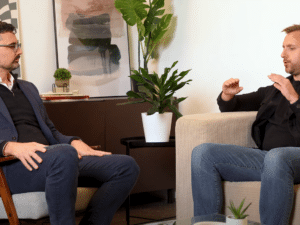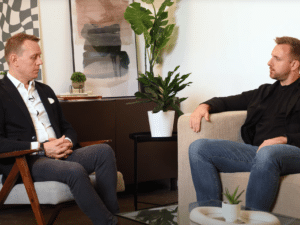Bridging the gap
The world of work has become less big corporate and more employee centric with HR taking centre stage. We have never been a function that craves the limelight and have been content in our business partnering support roles. But the pandemic has changed all that by making the people agenda top priority. How do we connect our executive leaders with their people in an increasingly uncertain and ambiguous environment? HR is the bridge between the two, and C-Suite leaders are increasingly looking at HR for expertise in this area.
I’m delighted to be partnering with Bharatti Crack, inspirational HR leader who has set up her coaching business and HR consultancy supporting clients across the sector. She assists HR professionals, challenging their thinking and supporting them to develop their skills, knowledge and resilience so that they can deliver with confidence and authority. I’m constantly hearing about HR professionals striving to set up on their own, and I thought it would be useful to share Bharatti’s experience with the market.
Q&A
1. What was the reasoning for making the transition into the interim market and setting up your own consultancy?
I reached a stage in my career when I wanted a change. I had spent over thirty- five years in permanent full- time employment and travelled regularly for my job. I had already started mentoring HR professionals and realised how much I enjoyed the discussions and sharing my knowledge and expertise. The challenge for me was letting go of my life that had been full-on; early starts, late finishes and the constant thinking about work. And whilst initially, I felt I might have “one more corporate left in me” I soon realised, without wanting to sound dramatic, that I “wanted my life back”.
2. Did you have any initial concerns moving away from your permanent career?
The most challenging aspect was moving out of my comfort zone. In permanent employment, you have the security of a regular salary, benefits and status. But I started to get tired of the same routine, i.e. annual performance appraisals; then talent mapping, global compensation review; budgets etc. I was lucky that at this time, I was given the support of a career transition coach who helped me to think through what I wanted in the next stage of my life. Once I had decided to leave the corporate world and take a big leap into the unknown, I felt excited and empowered.
3. How did you get started /build your portfolio? Any tips/advice to permanent candidates wanting to make the transition?
I’d personally done a lot of work in preparation with my career coach. Thinking about financial aspects, what I needed to maintain my lifestyle and cover living expenses. Financial planning is critical, as building a portfolio career can take time and be unpredictable. Next, it’s important to identify what is your USP so you can create your marketing plan. Additionally, engaging with your network is essential, especially contacts who are interims or who have a portfolio career already established. And don’t feel bad about reaching out to people via LinkedIn whom you may have neglected over the years. I have been surprised by how people are genuinely interested in helping even if you haven’t contacted them in years.
Your network can provide you with advice and guidance and may also be able to help you get your first role. I wanted the opportunity to develop my skills as a Board Trustee for a charity. I did my research. I read all I could about the role and responsibilities of a Charity Trustee; registered with the website Reach, which advertises charity opportunities and contacted Trustees within my network for advice.
4. What is it about leadership Development and Coaching that you love?
I have been lucky in my career to have worked with some great leaders but also some pretty bad ones. I have witnessed inspirational leaders with passion and vision who have an authentic connection with their people. I use my experience to support my coaching practice. I have always loved sharing my knowledge and find it very satisfying when I see individuals I work with develop and grow. I particularly like coaching women, as I sometimes see in them the struggles and challenges I faced when I first started out, i.e. lack of confidence, balancing the different roles we have as a partner, carer and professional etc. I get personal satisfaction seeing people I have helped doing well and thriving.
5. What are the required tools to successfully sustain change, and how do you facilitate behavioural change?
Change doesn’t just come from implementing a new IT system or introducing six sigma to a team. It starts with the organisation, its vision, mission and values. Are they aligned to support the change required and is the leadership team fully on board? Is the culture of the organisation adaptive and inclusive to create a sustainable change? Do the initiatives around D&I foster a culture that gives employees a true sense of belonging?
HR can facilitate, but the ownership for delivering change must be the responsibility of the leadership team. Behavioural change involves all stakeholders through communication (with emphasis on employee feedback), employee engagement, support and training. Identifying Change Champions throughout the organisation and at all levels helps to sustain the change. Leaders and managers need to demonstrate the behaviours and be prepared to challenge when required. Through the use of the various communications channels, you can align behaviours with the values, mission and vision of the organisation together reinforcing the sustaining the change through updating processes, i.e. recruitment, performance, reward etc.
6. What are the type of issues you face with executive leaders of today, and how do you overcome barriers and resistance to change?
The challenge for leaders today is navigating the organisation through a time of great uncertainty and volatility. Business continuity management equipped organisations to manage their systems, processes and regulatory obligations during a crisis. But the plans didn’t cover national lockdowns with the majority of employees required to work from home or on furlough. The pandemic has put the focus on people which is difficult for some leaders who are more comfortable with systems and processes.
The HR leaders I know have had to quickly adapt themselves to new concepts, requirements and manage their executive management through this crisis. They have had to coach line managers in managing remote workers and ensure the health and wellbeing of all employees is centre stage. There are examples I have where leaders have embraced the challenge and focused on their employees, ensuring they have the equipment, not just laptops but office chairs to be able to work from home effectively (and comfortably). Then there are the leaders who do not like the concept of home working and have resisted until the last minute. The results of the two approaches are clearly reflected in their employee engagement results!
7. Why is it becoming increasingly important for leaders to be developed and coached in this current economic climate?
The pandemic has thrown up lots of issues for leaders. Traditional leadership development has focused around creating leaders with vision, strategy and focus. But the current economic environment requires leaders to connect to their humanity, i.e. developing empathy, caring and people-focused. The previous ways of communicating face to face via all staff meetings, Townhalls etc. are part of the pre-pandemic world. Leaders are now required to use virtual tools to build trust and relations with their managers and teams. This is where HR leaders can really assist their executive managers in understanding the need to adapt and supporting them to change. While HR leaders take care of their leadership team, I focus in my work on supporting them. Heads of HR probably have the loneliest role in the organisation, and yet in this current crisis, they have been thrown into the spotlight. People have become the focus with working from home, supporting managers in remote management and being sensitive to mental health issues. HR leaders are great at offering solutions to everyone else but are not good at asking for assistance for themselves.
In my practice as a technical coach, I offer my knowledge, experience and insight to support HR leaders navigate during very uncertain times. I’m not practising as an executive coach but as an HR practitioner who is able to offer problem-solving solutions and reassurance.
“Bharatti’s expertise in the Human Resource field is second to none. She is a master of providing constructive feedback, which challenges me to think differently and more strategically. She has really helped me to develop the best possible solutions and initiatives before presenting and implementing these to the board and my wider business.“
Jennifer Jackson, MCIPD HR Director at WCS Group
“Bharatti allows you space to come to your own conclusions through asking the right questions and the advice, and support she has provided in that time has been invaluable…. She obviously has a wealth of knowledge and experience and is a highly skilled people person, but she is also genuine, kind, professional and supportive.“
Laura Taylor-Smith, Global Head of HR at ITRS Group
If you have any questions about this article and if you need support hiring or finding the right role for you contact Dominique.



